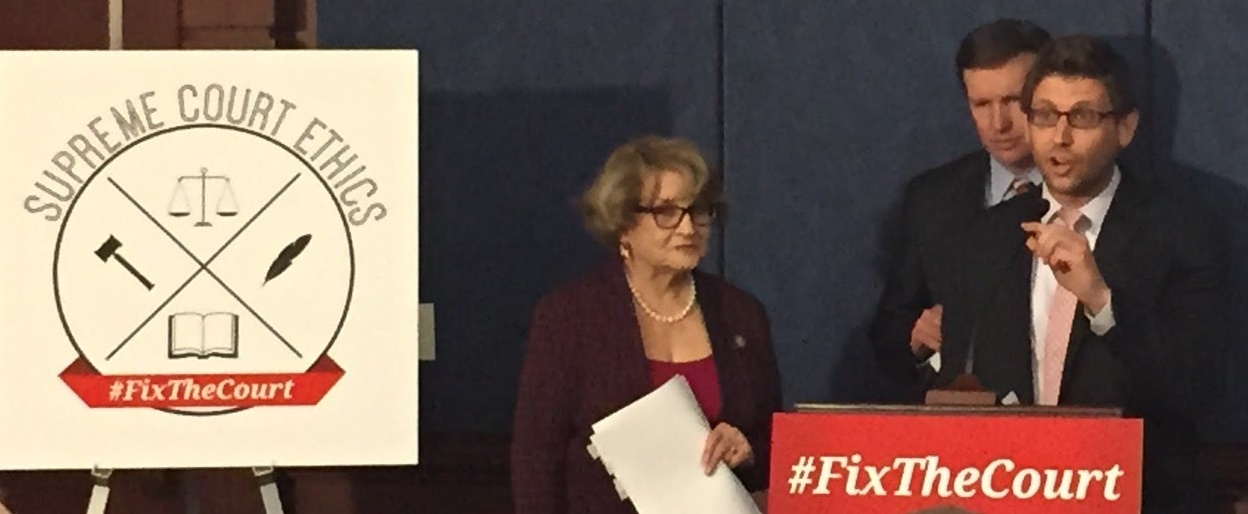New Bills Push Supreme Court to Adopt Code of Conduct
Code Would Improve Accountability at Least Accountable Government Institution
WASHINGTON, D.C. – Lawmakers on Capitol Hill introduced bills today that would direct the Supreme Court justices to adopt the same binding code of ethics used by all other federal judges. The legislation, called the Supreme Court Ethics Act of 2015 and introduced in the upper chamber by Sen. Chris Murphy (D-Conn.) and in the House by Rep. Louise Slaughter (D-N.Y.), would end the exemption for the nine jurists and require them to adopt the Code of Conduct for U.S. Judges within 180 days of the law’s passage.
Following the introduction of the new bills, Fix the Court, a non-partisan advocacy group pushing the Supreme Court to become more transparent, urged lawmakers to consider this and other measures aimed at improving high court accountability.
“It’s surprising that our country’s most powerful interpreters of law have refused to adhere to the ethics code that guides the rest of the federal judiciary,” said Gabe Roth, executive director of Fix the Court. “Enacting a binding code of conduct would compel the justices to create uniformity around thorny issues like recusals and participation in political activities and would bring them closer to the public’s expectations of accountability from government officials.”
Research compiled from Fix the Court points out that while none of the justices of the Supreme Court has committed a removal offense, all nine of them are culpable of various ethical oversights, from leaving assets off their annual financial disclosure reports to speaking at partisan fundraisers to ruling on cases despite credible conflicts of interest.
In 2011 Chief Justice John Roberts attempted to address criticism about the court’s failure to adopt the Code of Conduct by explaining that the justices indeed “consult” the code – but in the years since, the justices have made no attempt to join all other federal judges and officially adhere to it. Two years ago Justice Anthony Kennedy responded to a congressman’s question about why the justices were not bound to the code by saying, “It’s potentially difficult for circuit judges to make rules” – i.e., the very same Code of Conduct, which was promulgated by lower federal court judges, “that are binding on us,” the nine Supreme Court justices.
While Fix the Court disagrees with either justice’s line of reasoning – the justices could easily and formally adopt the code tomorrow if they so choose – legal scholars believe that since Congress can legislate institutional changes to the high court, it may use its statutory authority to compel acceptance of the code.
“Ethics is not a partisan issue, and today’s push is an ideal opportunity for members of Congress of both parties to unite under the banner of ethics reform,” Roth added. “Leaders of both the House and the Senate Judiciary Committees should look at today’s proposals, put a hearing on the calendar and hold a committee vote soon after.”
